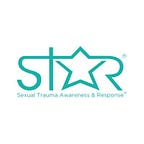10 Things STAR Wants Survivors to Know
You are not alone.
STAR is here, 24 hours a day, 7 days a week via our hotline (855–435-STAR). A trained advocate will answer your call and provide resources. STAR offers no-cost advocacy, counseling and legal services. You can also call 988, a suicide and crisis hotline.
Your experience is unique.
No two survivors will have the same experience. There is no “normal”. Some days are good, others bad, one moment you may feel sad, another anger, another fear, or maybe numb. This is common. This is “normal”.
Your assault was not your fault.
Feelings of shame and guilt might be something you experience. Replaying your assault, criticizing your decisions, and blaming yourself may happen. However, your assault was not your fault. The blame and responsibility lie solely on the perpetrator.
Your safety is very important.
If you feel your safety is at risk, for any reason, seek resources to discover what options you have. Being in an unsafe environment may make healing difficult, if not impossible. Our bodies are meant to live in constant high-stress.
Routine medical care matters.
Physical and emotional health are intimately intertwined, often referred to as the mind-body connection. Taking care of your physical health will promote mental well-being. Try to attend your annual physical exams, routine bloodwork, dental care, and properly taking prescribed medicine.
Reporting to the police is your decision.
Unless the assault involves a minor, reporting to the police is your decision. Processing this decision is not something you have to do alone. STAR’s advocates and legal team are here to help.
Crisis lines can provide resources.
These hotlines are designed to provide support in-the-moment if you are in crisis or experiencing distressing symptoms, such as anxiety. However, they do so much more! Crisis lines can provide local resources for you to seek further care.
Healing is a process.
And this process is not linear. The process is filled with ups and downs, progression and regression. This process requires time and hard work, which can feel very unfair. Your process is your own.
Connection is crucial.
Isolation can increase feelings of distress and hinder healing. Reconnecting with friends/family, hobbies, and other things that brought you joy is important to the healing process. Connection may look different. Perhaps joining a support group could build a new community of people who understand your experience.
Self-care should be prioritized.
Finding ways, and the time, to take care of ourselves can be difficult. Be sure to give yourself space for the things that make you feel refreshed. The National Institute of Mental Health provides several ideas and resources for self-care.
If you would like to help STAR continue providing quality care and resources for survivors, please consider donating to celebrate our 10th anniversary!
